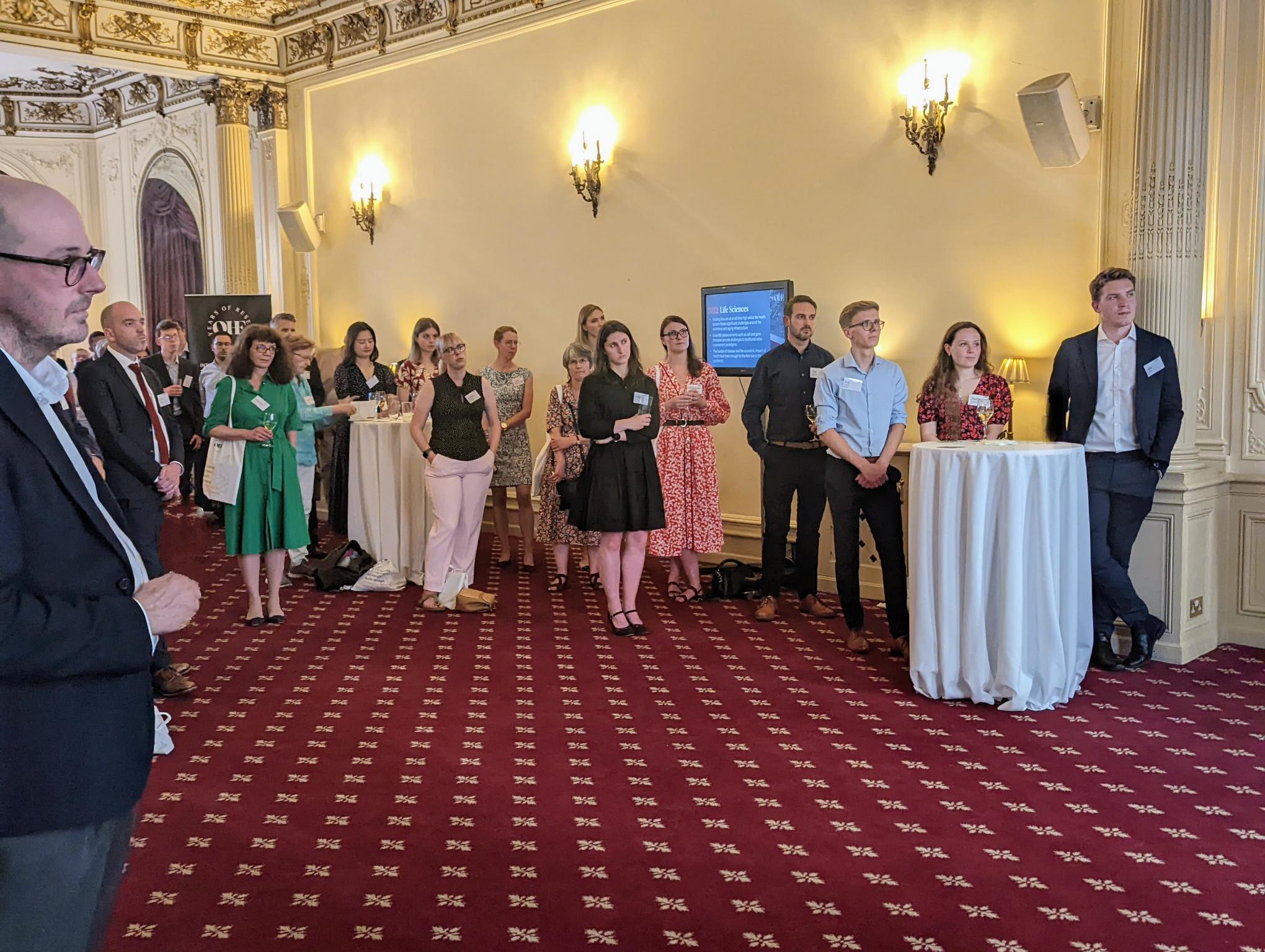Unlocking the Value of Combination Therapies



OHE Lunchtime Seminar with Sir Geoffrey Owen and Professor Michael Hopkins. The biotech sector of the US has enjoyed a success that the UK sector has found difficult to match. Will the Brexit improve or damage UK’s biotech sector prospects?…
OHE Lunchtime Seminar with Sir Geoffrey Owen and Professor Michael Hopkins. The biotech sector of the US has enjoyed a success that the UK sector has found difficult to match. Will the Brexit improve or damage UK’s biotech sector prospects?
OHE Lunchtime Seminar with Sir Geoffrey Owen and Professor Michael Hopkins: The UK biotech sector and Brexit: past performance and future prospects. To be held on 2nd November 2017 from 12pm to 2pm.
In their recent book ‘Science, the State and the City: Britain’s struggle to succeed in biotechnology’ (Oxford University Press, 2016), Owen and Hopkins examine the evolution of an important new industrial sector, founded on high hopes for the commercial exploitation of emerging applications for biotechnology. In this seminar Owen and Hopkins update the analysis in their book to discuss the implications of Brexit.
The US has led in commercialising biotechnology, and it has been difficult for firms in other economically advanced countries, including the UK, to match leading US companies. By focusing on the institutions and policies which have underpinned US success, it is possible to identify several interlocking elements that provided the US with a powerful competitive advantage in biotechnology – and in particular in the development of innovative therapeutics. These include: a higher education system which has close links to industry; massive support from the Federal government for biomedical research; and a financial system which is well equipped to support young entrepreneurial firms in a science-based industry.
While the US sector has enjoyed a virtuous cycle of commercial success and re-investment, the UK sector has suffered from a pronounced boom and bust in the financing of emergent biotech firms following from a series of clinical trial failures. Although the UK sector has enjoyed a revival in recent years, Brexit brings new challenges and, perhaps, opportunities.
Will the prospects of the sector be improved or damaged by Brexit? The purpose of the seminar is to review the lessons of the past – looking in particular at the role of government and its agencies – and to assess the implications for the sector of the UK’s departure from the EU. How far will the loss of the benefits of EU membership, including access to EU funding for R & D, be offset by the greater freedom which UK governments will enjoy to support the domestic biotech sector?
Sir Geoffrey Owen is currently a visiting professor at the London School of Economics and head of industrial policy at Policy Exchange. He was formerly editor of the Financial Times (1980-1990) and a senior fellow in the LSE’s Department of Management, LSE (1991-2015).
Dr. Michael Hopkins is a Senior Lecturer and Director of Research at SPRU – the Science Policy Research Unit, in the School of Business, Management and Economics, University of Sussex. His research focuses on industrial dynamics, particularly in relation to technological emergence and innovation processes for therapeutics and diagnostics.
To attend this seminar in person please register here.
Webinar facilities will be available for this lunchtime seminar, registration is needed, please contact Kerry Sheppard (ksheppard@ohe.org) if you wish to join. Details of the webinar will be sent out closer to the event date.
An error has occurred, please try again later.
This website uses cookies so that we can provide you with the best user experience possible. Cookie information is stored in your browser and performs functions such as recognising you when you return to our website and helping our team to understand which sections of the website you find most interesting and useful.
Strictly Necessary Cookie should be enabled at all times so that we can save your preferences for cookie settings.
If you disable this cookie, we will not be able to save your preferences. This means that every time you visit this website you will need to enable or disable cookies again.
This website uses Google Analytics to collect anonymous information such as the number of visitors to the site, and the most popular pages.
Keeping this cookie enabled helps us to improve our website.
Please enable Strictly Necessary Cookies first so that we can save your preferences!


